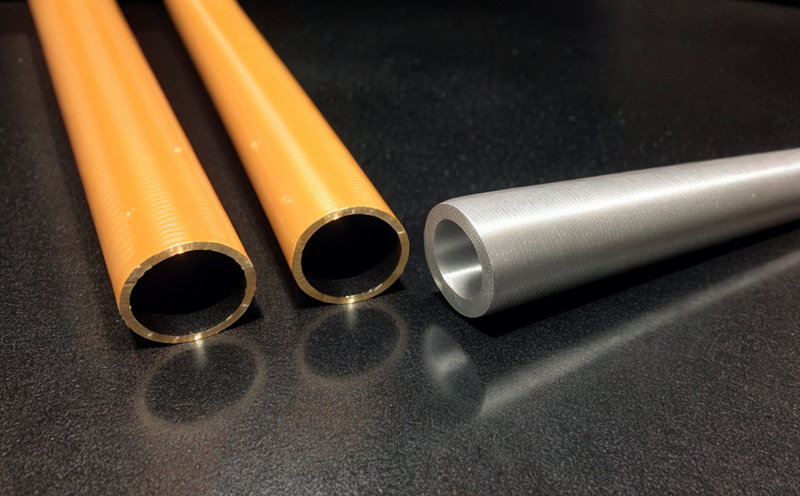ASTM D7250 Shear Testing of Sandwich Constructions
The ASTM D7250 standard shear testing method is critical in aerospace and aviation industries where materials must withstand extreme conditions. This test evaluates the shear strength between two adjacent layers within sandwich structures, which are widely used in aircraft components such as fuselages, wings, and control surfaces. The primary goal of this test is to ensure that these composite structures can endure the stresses encountered during flight without compromising safety.
Sandwich constructions typically consist of a core material surrounded by two facesheets. These structures benefit from reduced weight compared to monolithic components while maintaining structural integrity. However, the shear strength between the face sheets and the core is crucial for overall performance. ASTM D7250 provides a standardized approach to assess this critical property.
The test involves preparing samples according to specified dimensions outlined in ASTM D7250. Specimen preparation includes cutting rectangular pieces with known thicknesses, ensuring that they are free from defects and adhered correctly using compliant adhesives. Once prepared, the specimens undergo loading in a shear testing machine until failure occurs.
The apparatus used for this test typically consists of a universal testing machine capable of applying controlled shear forces to the sample. The machine is equipped with appropriate fixtures designed specifically for sandwich construction samples. During testing, strain gauges are attached around the specimen edges to monitor deformation accurately.
Acceptance criteria vary depending on specific aerospace or aviation standards; however, generally speaking, successful results demonstrate adequate adhesion strength between layers under specified loading conditions. Compliance with these requirements ensures that materials meet industry expectations regarding reliability and durability.
In summary, ASTM D7250 shear testing plays a vital role in ensuring the quality of composite materials used in aircraft manufacturing processes. By adhering to this standard methodology, manufacturers can confirm their products' ability to withstand operational stresses confidently.
Why It Matters
The importance of ASTM D7250 shear testing cannot be overstated when it comes to ensuring the safety and performance of aircraft components. Aircraft structures subjected to continuous stress during flight must maintain their integrity over long periods without compromising on weight or strength.
Compliance with this standard helps prevent failures that could lead to catastrophic accidents. For instance, improper bonding between layers in sandwich constructions can result in premature delamination, which may cause structural damage and compromise airworthiness. Regular quality checks through rigorous testing ensure continuous improvement in manufacturing processes.
Aerospace manufacturers rely heavily on composite materials due to their lightweight yet robust nature. However, it is essential to verify that these materials perform consistently across all units produced. ASTM D7250 provides a reliable means of validating this consistency by providing uniform test procedures and criteria.
Additionally, compliance with international standards like ISO 15693 or AS 6284 further reinforces the credibility of testing results among global markets. This consistency in quality is particularly important for businesses operating internationally, as it allows them to meet regulatory requirements more efficiently.
Industry Applications
- Aerospace and aviation component manufacturing
- Military aircraft structural integrity assessment
- Commercial airliner maintenance and certification
- R&D for advanced composite materials
Use Cases and Application Examples
- Evaluating the shear strength of carbon fiber reinforced polymers (CFRP) in wings.
- Testing honeycomb core adhesives used in fuselage construction.
- Determining the bond quality between foam cores and external panels.
- Assessing new adhesive formulations for improved durability.
In addition to these specific applications, ASTM D7250 shear testing also plays a role in validating the reliability of various composite materials used across different sectors within the aerospace industry. For example, it helps ensure that all parts meet stringent FAA regulations regarding airworthiness and safety standards.





